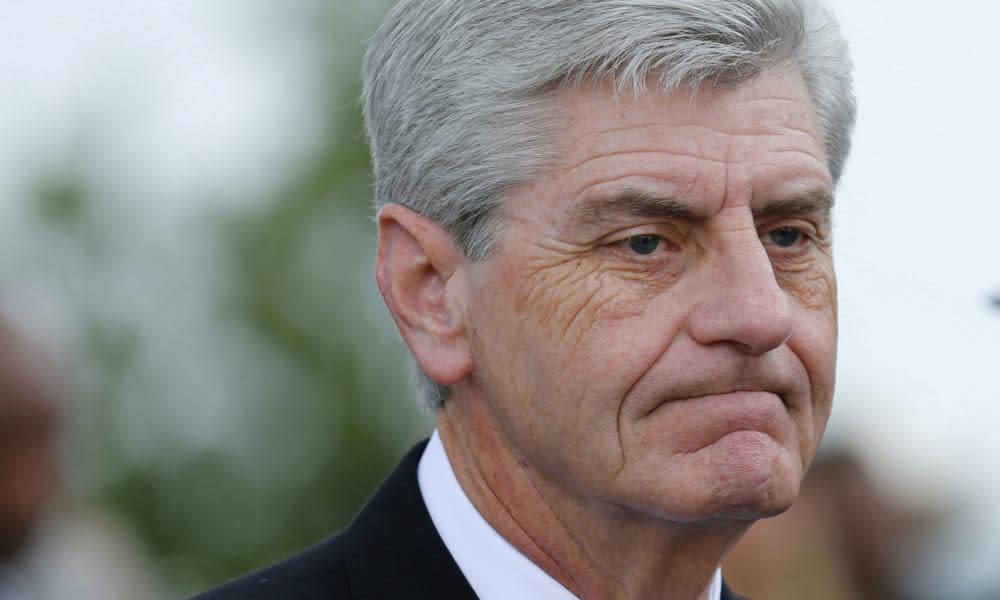Judge blocks restrictive Mississippi abortion law just signed by governor

Mississippi’s governor signed the nation’s tightest abortion restrictions into law on Monday – but less than 24 hours later it was blocked by a judge.
Governor Phil Bryant, a Republican, had signed HB 1510 on Monday afternoon with immediate effect, banning most abortions after 15 weeks of gestation. Bryant has frequently said he wants Mississippi to be the “safest place in America for an unborn child”.
The law’s only exceptions are if a fetus has health problems making it “incompatible with life” outside the womb at full term, or if a pregnant woman’s life or a “major bodily function” is threatened by pregnancy. Pregnancies resulting from rape and incest are not exempted.
But on Tuesday, a judge temporarily blocked the law after a request by the state’s only abortion clinic and a physician who works there.
Dr Sacheen Carr-Ellis of the Jackson Women’s Health Organization had stated in court papers filed within a few hours of the new legislation being enacted on Monday that a woman 15 weeks or more pregnant was scheduled for a Tuesday afternoon abortion.
Abortion rights advocates called the new law unconstitutional because it limits abortion before fetuses can live outside the womb.
US district judge Carlton Reeves heard arguments Tuesday before granting the clinic’s immediate request for a temporary restraining order.
“The supreme court says every woman has a constitutional right to ‘personal privacy’ regarding her body,” Reeves wrote in a brief decision that quoted previous legal rulings on abortion. “That right protects her choice ‘to have an abortion before viability.’ States cannot ‘prohibit any woman from making the ultimate decision’ to do so.”
The owner of Mississippi’s only abortion clinic, Diane Derzis, opposes the law and had pledged to sue, duly filing suit on Monday.
Derzis said after the state legislature passed the bill earlier this month, sending it to the governor, that if Bryant signed it her clinic would be forced to turn away women who seek abortions after 15 weeks and refer them out of state, where the number of clinics is also dwindling in the face of legal and legislative challenges by a resurgent conservative religious movement.

Carr-Ellis said in a statement: “A woman who is pregnant should have the ability to make the decision that is best for her about the course of her pregnancy, based on her own values and goals for her life.”
The woman who had been scheduled to have an abortion on Tuesday afternoon was able to go ahead with the procedure.
Republican House speaker Philip Gunn said at the bill’s signing Monday: “The winners today are those babies that are in the womb, first and foremost.”
The legal challenge could ultimately set up a supreme court showdown over the 45-year-old landmark Roe v Wade case that legalized abortion in the US in 1973.
Mississippi, a relatively poor state, has the highest infant mortality rate and worst overall ranking in the nation for children and infant care, according to the 2018 Health of Women and Children report published earlier this month by America’s Health Rankings, which has been publishing an annual state-by-state assessment for nearly 30 years, according to Newsweek.
Along with shortening the window in which a woman can seek to have an abortion, the law, also known as the Gestational Age Act, also says a person found guilty of performing an abortion after 15 weeks of gestation will face a felony conviction and up to 10 years in prison and could have their medical license suspended or revoked. Before the new law, Mississippi banned abortion after 18 weeks of gestation.

 Yahoo News
Yahoo News 
